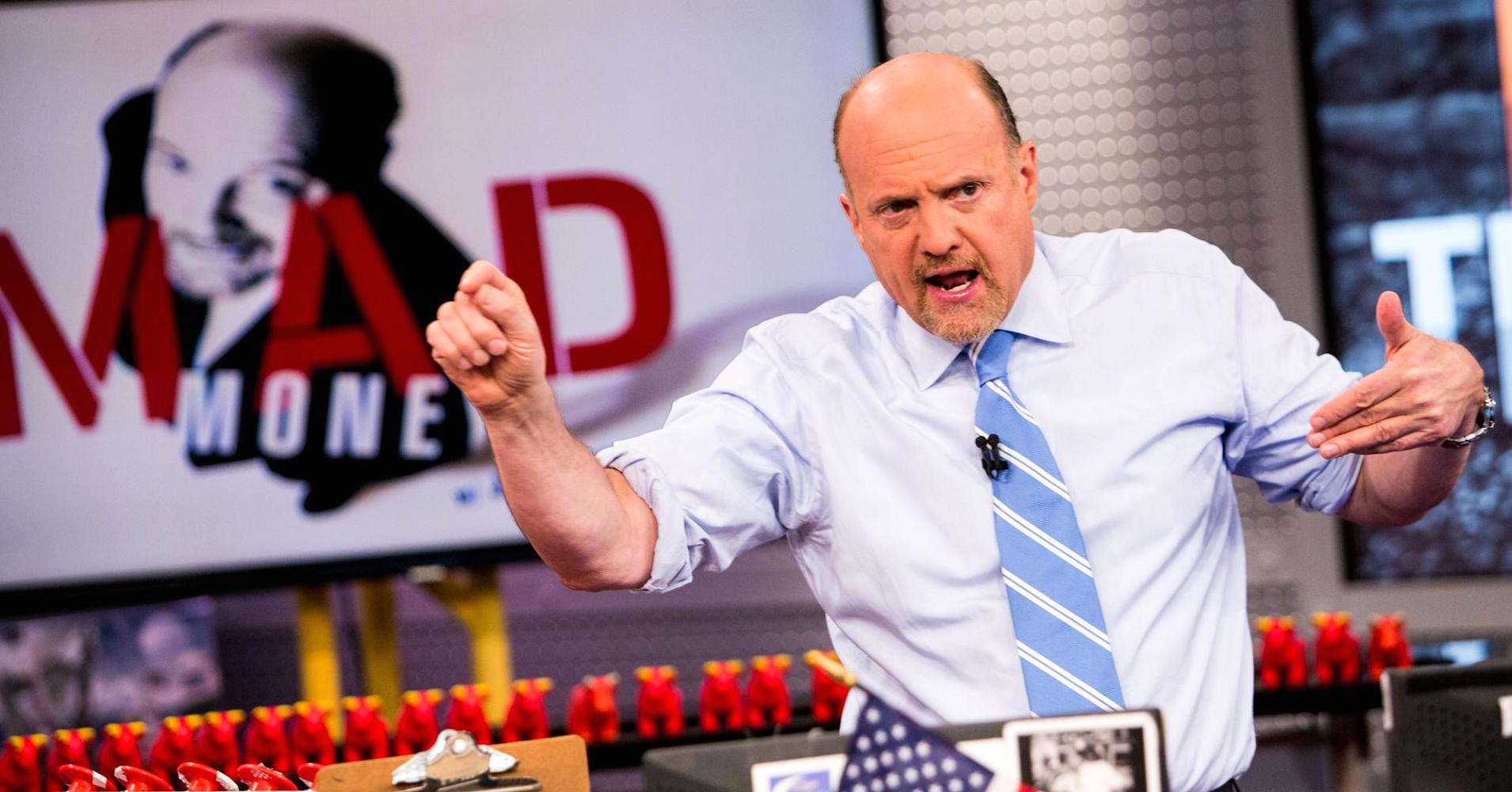
Investors who want to understand why the market’s top technology stocks are so misunderstood need only to watch Facebook CEO Mark Zuckerberg’s testimony before Congress, CNBC’s Jim Cramer said on Wednesday.
“They’re the perfect microcosm for how many investors really view these stocks,” the “Mad Money” host said, referring to FAANG — his acronym for the stocks of Facebook, Apple, Amazon, Netflix and Google, now Alphabet.
“Here’s the fundamental problem: most people over the age of 40 don’t even know what these companies do,” Cramer continued, pointing to Congress’ seemingly weak grasp of Facebook’s business model.
But for Cramer, the generational divide was only part of the problem. The other part was people being too skeptical about the tech giants because of their ever-changing stories.
“The truth is, FAANG is hard to understand because these companies are constantly evolving. They change the business models all the time,” he said. “I’m not urging to you embrace their seemingly sky-high market capitalizations. … I’m simply saying that they have these valuations for a reason, with many different parts of their businesses firing on all cylinders.”
As thin trading sent stocks lower and oil prices soaring into the close on Wednesday, Cramer searched for non-oil-related action that defined the tape.
“It’s always weird when you look at the non-oil standouts on a day like today because the most glaring one happened to be the stock of Facebook. For the second day in a row, founder and CEO Mark Zuckerberg dazzled by not dazzling,” Cramer said. “He almost made you believe that he’s the conscience of social media.”
But even though Zuckerberg’s testimony was largely well-received, Cramer warned investors not to be too forgiving with the embattled social media giant.
“We simply can’t like Facebook as much as we used to,” Cramer said, adding that his charitable trust has been selling shares of Facebook. “You don’t like a company more after its CEO gets grilled by lawmakers, you like it less.”
As retailers turn their focus to reaching consumers in the most effective ways possible, big data is becoming a key tool for companies like The Gap, Inc., President and CEO Art Peck told CNBC.
“We’ve really been building back-end big data analytic capabilities now for a couple of years, and data is a huge asset for us,” Peck said on Wednesday in an interview with Cramer. “It’s surprising to me that more people in our space aren’t talking about it.”
Gap, the parent company of Old Navy, Banana Republic and Athleta, among other brands, handily beat earnings estimates in March thanks in part to the strength of its brands, Peck said.
The retail giant, which sees two billion customer visits a year between its websites and its stores, also gets a boost from using the data it collects to market to consumers.
On Friday, earnings season will kick off in earnest with reports from four big banks — Citigroup, J.P. Morgan, Wells Fargo and PNC Financial — and Cramer thinks it’ll be just what this market needs.
“This is the most important earnings season for the big banks in years,” the “Mad Money” host said. “Some good performance by the financials [is] one of the few things that could get us back on track.”
Equities have been particularly volatile in 2018, with the S&P 500 down roughly 8 percent from its January highs. After a major sell-off in early February, stocks have struggled to find lasting tailwinds.
“For months now, the bulls have been desperate for any kind of positive catalyst,” Cramer said. “The banks get the first bite at the apple and they’re in a particularly enviable situation.”
Even with low unemployment and steady labor participation, demographic tailwinds are really what’s driving business at homebuilder Taylor Morrison, Chairman and CEO Sheryl Palmer told CNBC in an interview with Cramer.
“The average age of the millennial buying today … is somewhere around 30, 31,” Palmer said. “The largest group of millennials is turning 29, 30, so we have so much runway ahead. And then you think about the financial security of the boomers, so I’m very bullish about where we’re going.”
Following the excitement of Equal Pay Day, Palmer also shared her thoughts on women in business and the idea of pay parity.
“The way I think about it is people make different amounts of money for different reasons, and we can look at titles and say, simply speaking, somebody with the same responsibilities doing the same job with the same education managing the same book of business, they should make the same amount of money. But finding those that match is next to impossible,” Palmer said.
The CEO added that at her company, some women make more than men in the same roles and some men make more than women in the same roles.
“I think the real question we have to ask, though, is do we have enough women and do we have diversity, not just in our business, but across?” she said. “That’s really where the challenge lies. Then we can talk about equal pay.”
In Cramer’s lightning round, he shared his take on some callers’ favorite stocks:
Sprint: “Sell. When I see these stories about a takeover and I don’t have any more insight beyond what’s already been said, I think you have to ring the register.”
General Electric: “There was a Cowen report out today that I read that was very significant. It said don’t buy ahead of the quarter because there are some more write-downs coming. It did make me feel like, wait a second, let’s hold off. If you don’t own it, don’t buy it.”
Disclosure: Cramer’s charitable trust owns shares of Facebook, Apple, Amazon, Alphabet, Citigroup and J.P. Morgan.
Questions for Cramer?
Call Cramer: 1-800-743-CNBCWant to take a deep dive into Cramer’s world? Hit him up!
Mad Money Twitter – Jim Cramer Twitter – Facebook – Instagram – VineQuestions, comments, suggestions for the “Mad Money” website? madcap@cnbc.com

